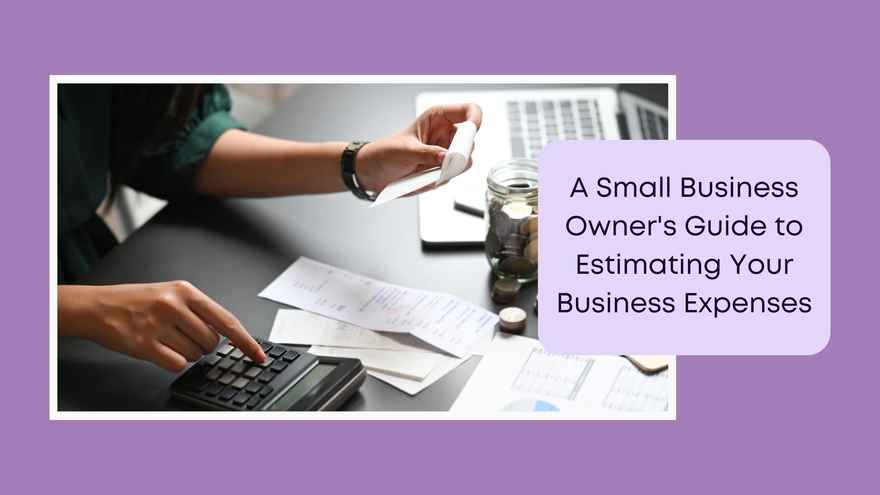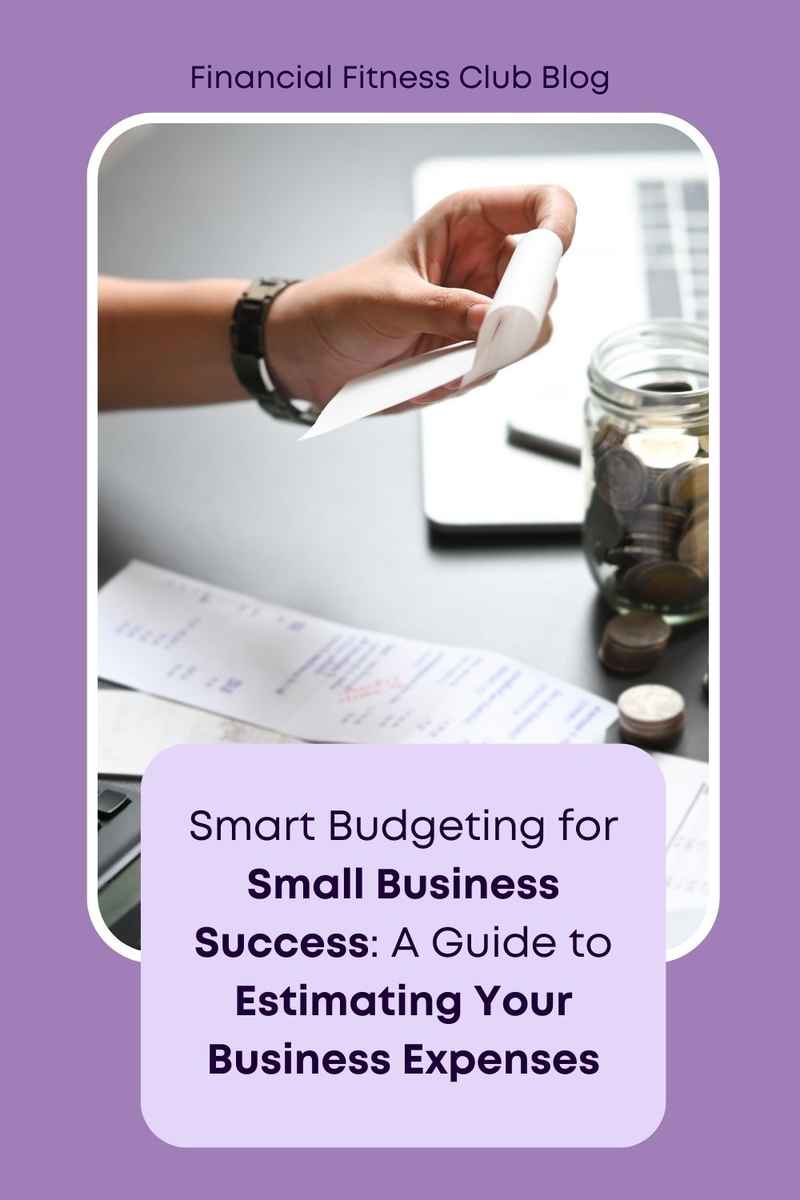Smart Budgeting for Small Business Success: A Guide to Estimating Your Business Expenses

Navigating the financial elements of a small business can be challenging, but understanding and managing your expenses is a crucial step towards stability and growth and a skill every business owner should master.
In this blog post, we'll explore the process of estimating expenses for your business. Expenses encompass all the costs and financial obligations you need to cover to keep your operations running smoothly, and by accurately calculating your expected expenses, you will gain insight into your business's financial health and set realistic financial targets.
Understanding Your Operating Expenses
Operating expenses are the costs associated with running your business day-to-day. They include fixed and variable costs, each playing a unique role in your financial planning.
Fixed Costs: Stability in Your Budget
Fixed costs are expenses that remain constant regardless of your level of production or business activity and include items such as rent, utilities, lease payments, and salaries.
Understanding these costs is vital for businesses to accurately forecast and manage their financial obligations, plan budgets, and assess profitability.
It is important to note that while they remain stable in the short term, they may vary in the long term due to factors such as contract renegotiations or changes in business size.
Variable Costs: Flexibility and Adaptation
Variable costs change in relation to your business activities. They rise with increased production and sales and decrease when business slows.
They can be influenced by material usage, labour hours or sales volume.
Examples of variable costs include material costs, packaging and shipping fees, and sales commissions.
Cost of Goods Sold (COGS): Direct Costs of Your Products
An important component of variable costs for product-based businesses is the Cost of Goods Sold (COGS). It includes the direct expenses of creating your products.
COGS is calculated by adding up all the production costs required to create your goods, such as raw materials and direct labour.
When the COGS is deducted from the income of the business, you have calculated the gross profit, which is the profit directly generated from the production of your products. Tracking your gross profit is a key performance indicator in product-based businesses.
Owner's Salary: Don't Forget Yourself
As a business owner who also works in the business, your salary is an essential part of your expenses. It's important to compensate yourself for your efforts and contribution.
Including a reasonable salary for yourself ensures personal financial health and reflects the true cost of running your business.
Estimating Net Profit: The Bottom Line
Net profit is what remains after all your expenses, including your salary, are deducted from your total revenue.
This figure is a crucial metric for understanding your business's financial health and making strategic decisions.
The formula for net profit is: Total revenue (minus) total expenses (minus) tax
How Projecting Operating Expenses Impacts Your Cash Flow
Estimating your expenses based on target revenue allows you to manage your cash flow better. You can understand when the cash is going out by putting your expenses in the month they are to be paid. This helps you to estimate your cash outflows and inflows more accurately by forecasting expenses in relation to revenue projections. Optimizing your cash flow ensures that you have enough funds at the right time to cover costs, avoiding cash shortages or excessive working capital.
Estimating your business expenses is more than just number crunching; it's about creating a sustainable financial foundation for your business. By understanding and managing your fixed and variable costs, COGS and ensuring you are fairly compensated, you're setting your business up for long-term success.
For more in-depth insights and tools to build your business skills, explore our Business Skill Builder Kit, Profit Planning Made Easy, where you'll find comprehensive resources tailored for small and micro business owners like you.

0 comments
Leave a comment
Please log in or register to post a comment